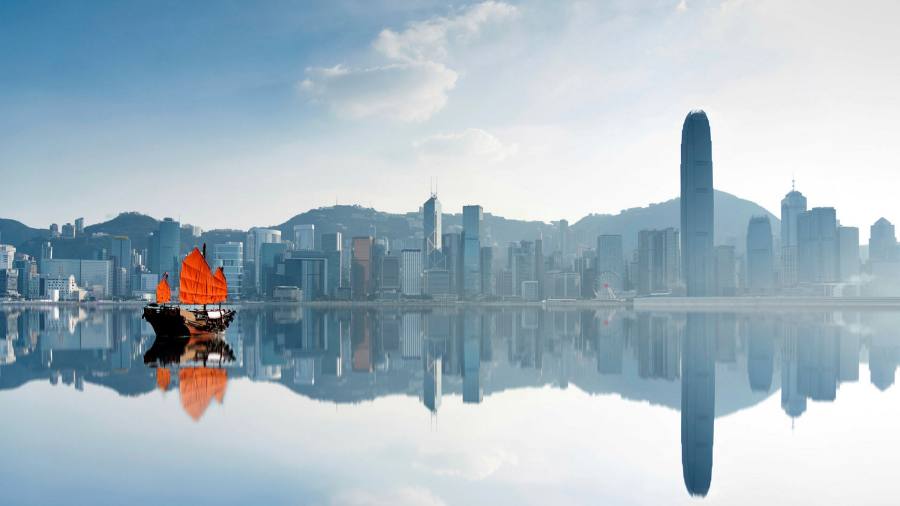[ad_1]
In his poem Ithaka, Constantine Cavafy describes “with what pleasure, what joy, you enter harbours you’re seeing for the first timeâ€. As I often arrive by plane, harbours are not the first things I see.
But when I do see water shortly after landing, it never fails to exhilarate: the vaporetto into Venice, the evening stroll along Hong Kong’s Victoria Harbour, Seattle’s waterside Pike Place Market. A few years back, as I walked in brilliant sunlight across the white-painted Cavenagh Bridge over the Singapore River, I said to myself: you were lucky to have done all this (and lucky, too, to be going back to a cloudier country where I can say what I like). Even when the first sight is the airport metro station or a rainy street, I’m lifted by the thought of being somewhere different.
With the coronavirus pandemic, business travel has largely stopped. Some think it should never restart; we can talk on Zoom. Most agree that when it does restart, there will be less of it. Companies will want to save money; flying damages the environment. I don’t contest either. But if we stop visiting each other, we will, in important ways, be diminished.
Travel not only broadens the mind, it deepens understanding — business travel most of all. Interactions on a work trip, unlike those on holiday, are not just with those serving you. You deal with people as equals. You go into their workplaces, you talk about what they are making and doing, you enter their lives. I have been into aircraft factories in Seattle and Toulouse, a financial services company in Bogotá, luxury watchmaking workshops in Geneva.
Each told me something. The intense competition between Boeing and Airbus (I once saw a banner on a Boeing factory wall that said “Refuse Toulouseâ€) demonstrated how these two rivals spurred each other on to greater technical ingenuity, and the dangers of cutting corners in doing it. In Bogotá, people talked, privately, about the relief and fragility of peace. Having been scornful of luxury watches costing tens of thousands of dollars when a phone tells the time more precisely, I marvelled, watching the watchmakers, at their pride in generations of craftsmanship. Even other countries’ offices have their fascinations: how people greet you, how they are with each other, what pictures they have on the walls.
Cavafy was born into Alexandria’s Greek community to parents from Constantinople. He spent his teenage years in England, where his family had a business, and he spoke Greek with an English accent. He stood, as the novelist EM Forster wrote, “at a slight angle to the universeâ€. Travelling, if we are prepared to enter other people’s lives, shifts our angle too. Far away from home or, like Cavafy, from the several homes we have had, travelling is a chance to see where we come from through others’ eyes. What seems so important at home often shrinks when we’re somewhere else.
Even those who say they don’t miss business travel and reckon it over-rated, boring and tiring, will accept, I hope, that they learnt from it. The destination — Ithaka for Cavafy (as in Homer’s Odyssey) — isn’t the only point. Cavafy ended his poem: “If you find her poor, Ithaka won’t have fooled you. Wise as you will have become, so full of experience, you’ll have understood by then what these Ithakas mean.â€
What wisdom and experience I have gained, I will leave you to judge, because this part of my journey is over. After three years of writing this column and 34 on the FT, I’m off to explore other things. I will appear in the FT occasionally in the future but, until then, thanks for your company.
Follow Michael on Twitter @Skapinker or email him at michael.skapinker@ft.comÂ
Follow @FTLifeArts on Twitter to find out about our latest stories first
[ad_2]
Source link





